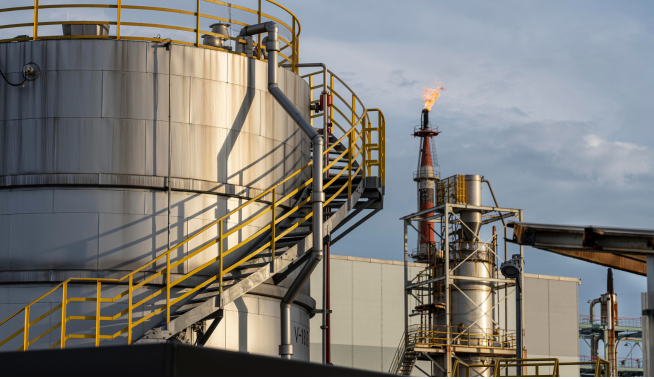In the realm of industrial infrastructure, few elements are as crucial as oil terminal storage tanks and jetting unit tankers. These structures form the backbone of the oil and gas industry, facilitating the storage and transportation of valuable resources. As the demand for efficient and reliable storage solutions continues to rise, the role of manufacturers becomes increasingly significant. In this blog post, we delve into the world of oil terminal storage tanks manufacturer and jetting unit tanker manufacturing, exploring their importance, key features, and the top manufacturers in the field.
Oil Terminal Storage Tanks: Engineering Excellence for Safe Storage
Oil terminal storage tanks serve as vital components in the oil supply chain, providing a secure and reliable means of storing large volumes of crude oil and refined products. These tanks come in various shapes and sizes, each tailored to meet specific storage requirements. From cylindrical tanks to spherical vessels, manufacturers employ advanced engineering techniques to design and construct tanks that maximize efficiency and safety.
Cutting-Edge Design and Construction
Leading manufacturers leverage cutting-edge technologies and innovative design methodologies to create storage tanks that meet stringent industry standards. Advanced materials, such as high-strength steel alloys and corrosion-resistant coatings, ensure the durability and longevity of these structures, even in the harshest environments.
Compliance and Safety
Safety is paramount in the oil and gas industry, and manufacturers adhere to strict regulatory guidelines to ensure compliance with safety standards. From fire protection systems to leak detection mechanisms, every aspect of tank design prioritizes the prevention of accidents and environmental hazards. Additionally, manufacturers implement rigorous quality control measures to guarantee the integrity of each storage tank, minimizing the risk of operational disruptions.
Customization and Scalability
Flexibility is key in the world of oil terminal storage tanks, as storage requirements can vary significantly from one facility to another. Top manufacturers offer customizable solutions tailored to the specific needs of their clients, whether it involves modifying tank dimensions, integrating specialized features, or accommodating unique site conditions. Moreover, scalable designs allow for seamless expansion or reconfiguration of storage capacity, ensuring that facilities can adapt to evolving demand patterns.
Jetting Unit Tankers: Precision Engineering for Efficient Transport
In conjunction with storage tanks, jetting unit tankers play a crucial role in the transportation of oil and gas products. These specialized vehicles are designed to safely and efficiently transport liquids, offering versatility and reliability in diverse operational scenarios. From bulk transportation of crude oil to the distribution of refined fuels, jetting unit tankers provide an indispensable link in the supply chain.
Optimal Performance and Maneuverability
Jetting unit tankers are engineered for optimal performance, combining powerful propulsion systems with precise control mechanisms to navigate various terrains and operating conditions. Whether traversing rugged landscapes or navigating congested urban areas, these vehicles deliver unmatched maneuverability and agility, ensuring timely delivery of critical resources.
Enhanced Safety Features
Safety remains a top priority in tanker transportation, and manufacturers spare no effort in integrating advanced safety features into their designs. From sophisticated braking systems to rollover protection measures, every aspect of tanker construction prioritizes the well-being of drivers, cargo, and the surrounding environment. Additionally, ongoing advancements in technology, such as real-time monitoring and telematics, enable operators to proactively identify and address potential safety risks.
Sustainability and Environmental Responsibility
In an era of increasing environmental awareness, manufacturers are committed to developing sustainable solutions that minimize the ecological footprint of tanker operations. Through the use of alternative fuels, emissions-reduction technologies, and lightweight materials, jetting unit tankers are becoming more environmentally friendly without compromising performance or reliability. Furthermore, manufacturers collaborate with industry stakeholders to promote responsible practices and support initiatives aimed at reducing carbon emissions and promoting sustainability throughout the supply chain.
The Importance of Quality Assurance in Manufacturing
Quality assurance is a critical aspect of manufacturing, especially in industries such as oil terminal storage tanks and jetting unit tanker production. Ensuring that products meet or exceed standards is paramount for reliability, safety, and customer satisfaction. Here are three key points highlighting the significance of quality assurance in manufacturing:
Consistency and Reliability
Quality assurance processes ensure consistency in product performance and reliability. By adhering to strict quality control measures throughout the manufacturing process, manufacturers can minimize variations in product quality, leading to reliable and predictable outcomes. Consistent quality builds trust among customers and enhances the reputation of manufacturers, ultimately driving long-term success and profitability.
Risk Mitigation and Compliance
Effective quality assurance practices help mitigate risks associated with product defects, safety hazards, and regulatory non-compliance. By identifying and addressing potential issues early in the manufacturing process, manufacturers can prevent costly recalls, lawsuits, and damage to their reputation. Compliance with industry standards and regulations is essential for ensuring the safety of end-users and maintaining the integrity of the supply chain.
Continuous Improvement and Innovation
Quality assurance is not just about meeting minimum standards; it also involves a commitment to continuous improvement and innovation. By analyzing data, soliciting feedback, and implementing best practices, manufacturers can identify areas for enhancement and drive innovation in product design, manufacturing processes, and quality management systems. Continuous improvement fosters a culture of excellence and positions manufacturers for sustained growth and competitiveness in the marketplace.
Conclusion
In conclusion, oil terminal storage tanks and jetting unit tanker manufacturer play integral roles in the oil and gas industry, providing essential infrastructure for storage and transportation operations. By partnering with reputable manufacturers that prioritize quality, innovation, and sustainability, companies can ensure the reliability and efficiency of their operations, driving continued growth and success in a dynamic and competitive market landscape.











